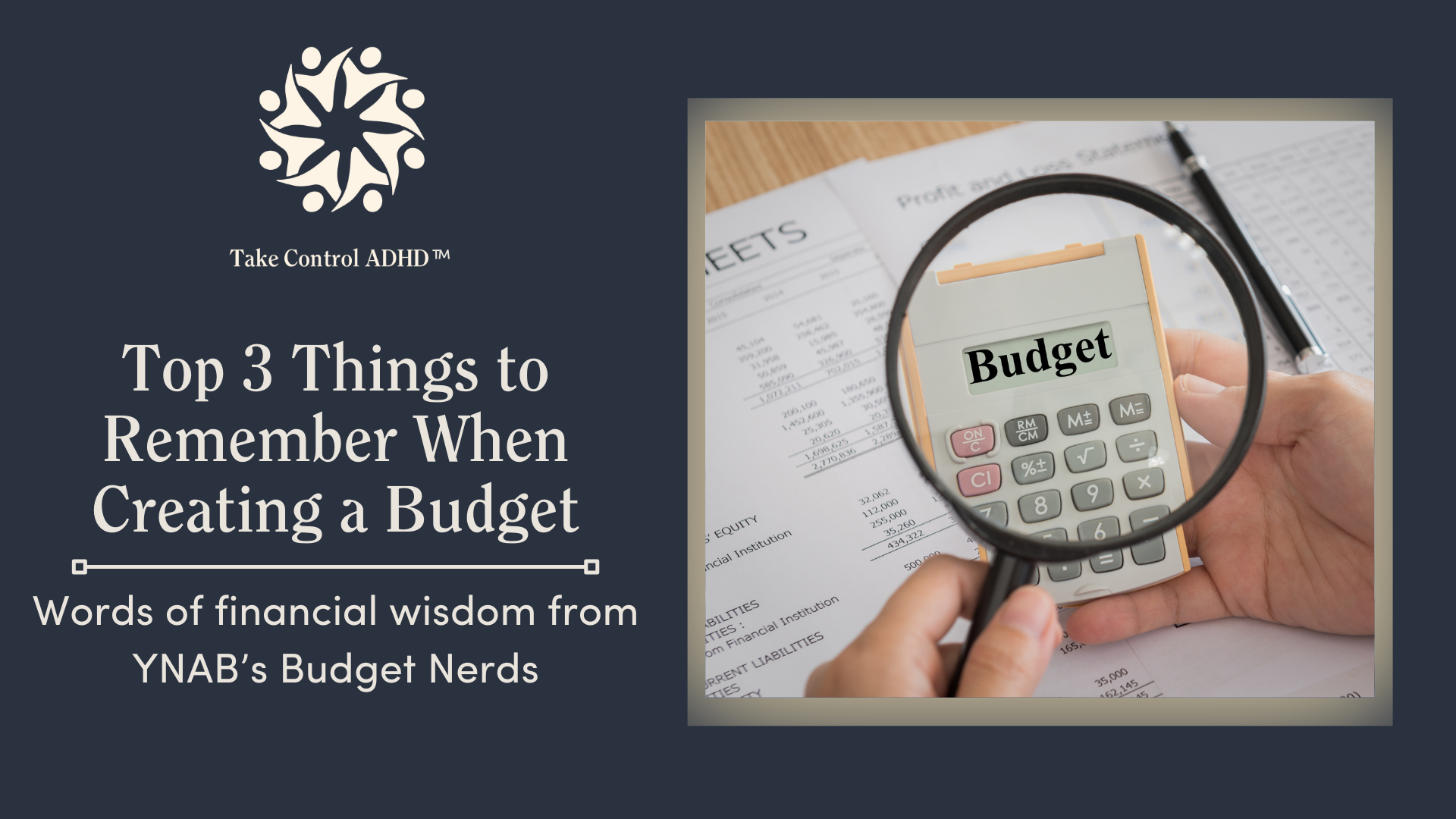Top 3 Things to Remember When Creating a Budget
When budgeting your money, do you find it hard to stick to a budget?
If you said ‘yes’, you are not alone. In fact, according to a 2025 survey from Investopedia.com, while 86% percent of people said they regularly use a budget for managing their money, only 25% of those people admitted to actually sticking to that budget.
What is the point of creating a regular budget if you know you aren’t going to end up sticking to it?
Wise Words from the YNAB Budget Nerds
On a recent episode of Taking Control: The ADHD Podcast, Pete and I had the pleasure of speaking with YNAB’s Budget Nerd duo, Ben Barlowe and Ernie Reppe.
Throughout our conversation, Ben and Ernie shared a lot of wisdom about what it can look like to truly create and consistently follow a budget. While there are an infinite number of ways to set up and use a budget for your money, Ben and Ernie shared a few, very important things to remember:
1. Give Every Dollar a Job
Instead of simply tracking what you’ve spent, plan ahead by assigning each dollar a specific purpose. This means categorizing your income into essential areas like rent and utilities, groceries, and even things like entertainment. By doing this, you create a clear roadmap for your spending, which can help reduce anxiety and impulsivity.
2. Embrace True Expenses
It might sound silly, but it’s important to intentionally recognize that not all expenses occur monthly. This means you are anticipating larger or less frequent bills, like car repairs or annual subscriptions. Set aside a small amount each month for these costs to avoid the stress of scrambling the next time they pop up. This proactive approach to budgeting not only prepares you for unexpected costs you will inevitably face, but also helps you feel more in control of your overall financial situation.
3. Keep It Flexible
Budgeting should be a flexible process. Life changes, and so do your financial needs. It’s important to regularly review your budget and make adjustments as necessary. If you discover that you tend to spend more than you usually budget for in one category, consider reallocating funds from another. This adaptability helps you maintain your budget without feeling restricted or defeated.
Now it’s Your Turn
Budgeting doesn’t have to be a source of stress; it can be a tool for empowerment, clarity, and peace of mind. By giving every dollar a job, embracing true expenses, and keeping your budgeting process flexible, you can create a financial plan that supports your goals and lifestyle.
I want to encourage you to take some time over the next few weeks and see how you might be able to implement some of these important reminders around budgeting.
What works? What doesn’t work? Be open to the process and allow for plenty of tweaks and changes as you discover what’s best for you and your financial situation. Remember, it’s about progress, not perfection!
Thank you for your time and attention,
-Nikki

